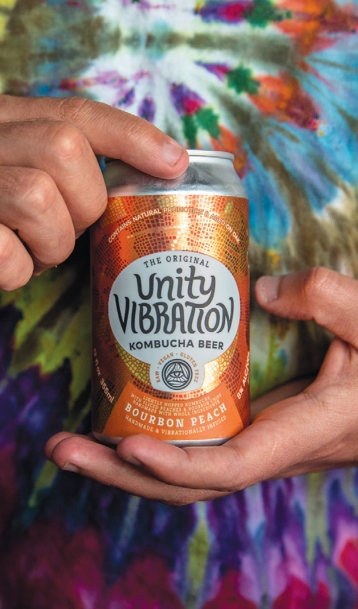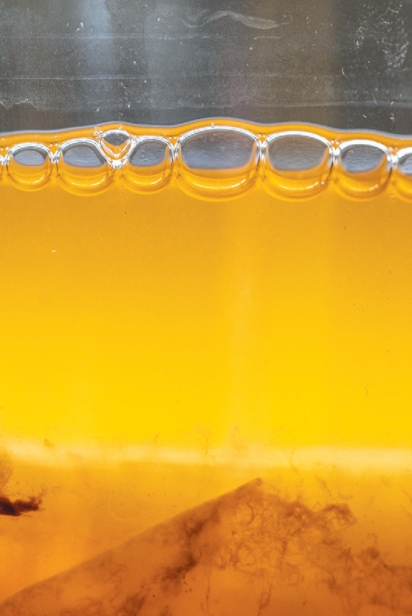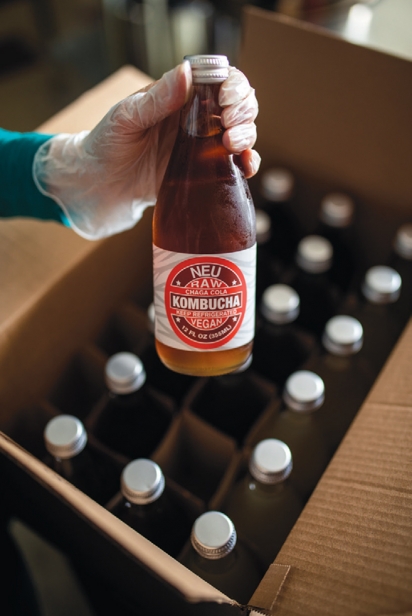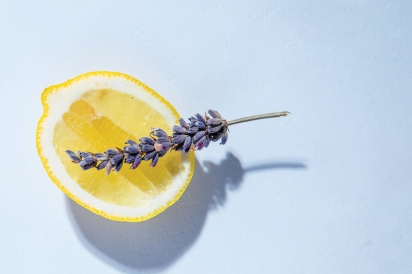Kombucha
AN ANCIENT DRINK REFRESHES TODAY’S WORLD
Few drinks inspire curiosity more than kombucha. To newcomers, it can seem as contradictory as it tastes: simultaneously simple and complicated, mysterious yet straightforward. To die-hard kombucha drinkers, it’s an elixir that tastes great, and might just help cure what ails you.
Though its rise in popularity feels somewhat fresh, kombucha dates back to 220 BC to a Korean named Dr. Kombu who treated an ailing Japanese emperor with a fermented kelp drink. Its base evolved to being a fermented sweet tea and by the early 20th century Europeans and Russians were homebrewing the drink still celebrated for its perceived health benefits. Fast forward to the mid-1990s, fermentation had a moment in the spotlight that helped to propel kombucha forward. Soon a new industry took over from home kitchens and health food stores, making the refreshing drink more accessible and popular to mainstream America.
“It’s a well-rounded, nutrient-dense drink,” says Jennie Neu-Sipkay, owner of Neu Kombucha in Farmington, referring to its beneficial bacterias, believed to help build digestive enzymes and improve gut health. It’s also unpasteurized, vegan and gluten-free.
Neu-Sipkay started Neu Kombucha in 2018 after four years brewing kombucha at Cacao Tree Café in Royal Oak. Today she makes 150 gallons weekly, divided into nine flavors sold on-site and at retail spots throughout metro Detroit and at Eastern Market and the Royal Oak Farmers Market. Neu Kombucha serves another 15 gallons in seasonal flavors or one-offs on tap at the store.
To make kombucha, brewers ferment tea—in Neu’s case, a blend of green, black or white oolong—with sugar and a SCOBY, an acronym for “symbiotic colony of bacteria and yeast.” It can ferment at room temperature roughly 7—30 days, says Neu-Spikay, who runs hers on a 14-day schedule. Next, brewers add fruits, roots or anything else that might help to achieve the desired flavor, before it undergoes a second, shorter, fermentation that also causes kombucha’s slight carbonation.
“A higher-sugar fruit will ferment and give you that effervescence in a shorter period of time,” says Neu-Sipkay, who uses all organic products.
The SCOBY, which in large batches resembles a gelatinous disk, is the drink’s much-touted living organism, similar to a sourdough starter or “mother.” And while newbies might cringe a little at drinking the residual SCOBY cloud floating in the bottle, most kombucha aficionados consider that to be the nutritional motherlode: chock full of beneficial vitamins and probiotics that can aid digestion and provide immune system support.
“It’s not like a medicine and you have to take it,” says Neu-Spikay, with a laugh, about the SCOBY. “You can strain it out. It’s more of a concentrated liquid than the kombucha itself. It just shows it’s a nice healthy kombucha that hasn’t been over-processed.”
“You’re actually getting benefits beyond the taste. It’s a living drink as those enzymes and the bacterias are in there without adding them artificially,” says Neu-Spikay, adding that they are helpful to your gut heath—”everything starts in your gut: your mood, your energy, your elimination”—and crediting the B vitamins, helpers in the fermentation process, for energy.
Because reports about its health benefits are more anecdotal than data driven, kombucha has a history of being misunderstood. It also faced controversy in 2010 related to its level of alcohol, a naturally occuring byproduct of fermentation.
“It’s categorized for beer and wine. Our kombucha is below 0.5 percent, so it’s considered a nonalcoholic drink,” says Neu-Spikay, adding that the kombucha trade organization is working with the government to clarify and change alcohol content restrictions.
That decidedly is not an issue for Unity Vibration Kombucha in Ypsilanti. Rather than dialing back the alcohol content, Unity opted to make the most of it by crafting a kombucha beer alongside their tea. A kombucha cider hybrid and a spritzer line soon followed.
“The process of making the beer is essentially very similar to making the tea,” says Rachel Kanaan, who co-founded Unity with her husband, Tarek, in 2008. “It starts with the SCOBY, add sugar and water, that’s what feeds it. We’ll either combine that with juice for different flavors or put it in the beer tanks. With the beer, that entails more time, hops and fruits, roots or berries.
The Kanaans were pleasantly surprised to find that the beer’s probiotic content measured comparably to the tea, says Tarek Kanaan, calling their SCOBY “a really good strain.”
“Kombucha is one of those things that people drink that has a probiotic that helps balance your flora,” says Rachel Kanaan. “Once you start drinking it, you feel so good. And I’m not just talking about the beer.”
They hear a similar mantra from their customers.
“It could have something to do with the sound vibration we infuse into everything,” says Rachel Kanaan, alluding to the sacred 528 Hertz sound vibrations from Tibetan singing bowls they infuse into every tank. That’s where the “Vibration” in the name came about for the pair that began brewing as hobbyists before launching Unity in what had been a spare bedroom. Today Unity has 10 full-time employees, including the Kanaans, and a production facility and tasting room that produced 55,000 gallons in 2020 and projects to surpass 80,000 gallons this year, with wholesale customers in 22 states and counting.
“We’re expanding really rapidly right now,” Tarek Kanaan says. “We’re kind of the mom-and-pop that is evolving into a bigger business. Hopefully we’ll be a Jolly Pumpkin or Bell’s.”
In the meantime, the Kanaans say they are careful not to lose sight of how much they value their relationships with local farmers and the Michigan agricultural community.
“We are the original, but we’re also sort of the craft brand, which we really want to be,” says Rachel Kanaan, describing Unity as a heritage brand that is the first, but sticks around. “We don’t see ourselves as being a trend. We see ourselves as being a mainstay.”
TASTE FOR YOURSELF...
NEU KOMBUCHA
33305 Grand River, Farmington; neukombucha.com
Most popular flavor? Lavender Lemonade
UNITY VIBRATION BREWERY AND TRIPLE GODDESS TASTING ROOM
93 Ecorse Rd., Ypsilanti; unityvibrationkombucha.com
Top sellers? Pineapple Ginger (tea), Down to Earth (spritzer) and Bourbon Peach (beer)








